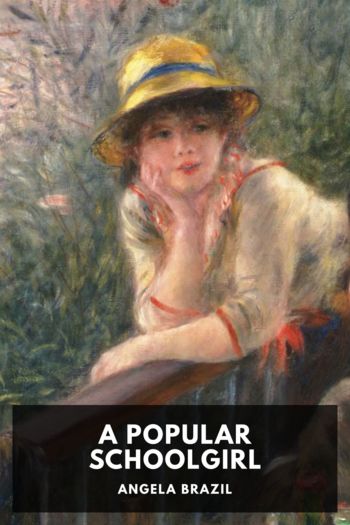Iola Leroy - Frances Ellen Watkins Harper (suggested reading txt) 📗

- Author: Frances Ellen Watkins Harper
Book online «Iola Leroy - Frances Ellen Watkins Harper (suggested reading txt) 📗». Author Frances Ellen Watkins Harper
Alfred Lorraine entered suit for his cousin’s estate, and for the remanding of his wife and children to slavery. In a short time he came armed with legal authority, and said to Marie:—
“I have come to take possession of these premises.”
“By what authority?” she gasped, turning deathly pale. He hesitated a moment, as if his words were arrested by a sense of shame.
“By what authority?” she again demanded.
“By the authority of the law,” answered Lorraine, “which has decided that Leroy’s legal heirs are his white blood relations, and that your marriage is null and void.”
“But,” exclaimed Marie, “I have our marriage certificate. I was Leroy’s lawful wife.”
“Your marriage certificate is not worth the paper it is written on.”
“Oh, you must be jesting, cruelly jesting. It can’t be so.”
“Yes; it is so. Judge Starkins has decided that your manumission is unlawful; your marriage a bad precedent, and inimical to the welfare of society; and that you and your children are remanded to slavery.”
Marie stood as one petrified. She seemed a statue of fear and despair. She tried to speak, reached out her hand as if she were groping in the dark, turned pale as death as if all the blood in her veins had receded to her heart, and, with one heartrending cry of bitter agony, she fell senseless to the floor. Her servants, to whom she had been so kind in her days of prosperity, bent pityingly over her, chafed her cold hands, and did what they could to restore her to consciousness. For awhile she was stricken with brain fever, and her life seemed trembling on its frailest cord.
Gracie was like one perfectly dazed. When not watching by her mother’s bedside she wandered aimlessly about the house, growing thinner day by day. A slow fever was consuming her life. Faithfully and carefully Mammy Liza watched over her, and did all she could to bring smiles to her lips and light to her fading eyes, but all in vain. Her only interest in life was to sit where she could watch her mother as she tossed to and fro in delirium, and to wonder what had brought the change in her once happy home. Finally she, too, was stricken with brain fever, which intervened as a mercy between her and the great sorrow that was overshadowing her young life. Tears would fill the servants’ eyes as they saw the dear child drifting from them like a lovely vision, too bright for earth’s dull cares and weary, wasting pain.
XII Schoolgirl NotionsDuring Iola’s stay in the North she found a strong tide of opposition against slavery. Arguments against the institution had entered the Church and made legislative halls the arenas of fierce debate. The subject had become part of the social converse of the fireside, and had enlisted the best brain and heart of the country. Anti-slavery discussions were pervading the strongest literature and claiming, a place on the most popular platforms.
Iola, being a Southern girl and a slaveholder’s daughter, always defended slavery when it was under discussion.
“Slavery can’t be wrong,” she would say, “for my father is a slaveholder, and my mother is as good to our servants as she can be. My father often tells her that she spoils them, and lets them run over her. I never saw my father strike one of them. I love my mammy as much as I do my own mother, and I believe she loves us just as if we were her own children. When we are sick I am sure that she could not do anything more for us than she does.”
“But, Iola,” responded one of her school friends, “after all, they are not free. Would you be satisfied to have the most beautiful home, the costliest jewels, or the most elegant wardrobe if you were a slave?”
“Oh, the cases are not parallel. Our slaves do not want their freedom. They would not take it if we gave it to them.”
“That is not the case with them all. My father has seen men who have encountered almost incredible hardships to get their freedom. Iola, did you ever attend an anti-slavery meeting?”
“No; I don’t think these Abolitionists have any right to meddle in our affairs. I believe they are prejudiced against us, and want to get our property. I read about them in the papers when I was at home. I don’t want to hear my part of the country run down. My father says the slaves would be very well contented if no one put wrong notions in their heads.”
“I don’t know,” was the response of her friend, “but I do not think that that slave mother who took her four children, crossed the Ohio River on the ice, killed one of the children and attempted the lives of the other two, was a contented slave. And that other one, who, running away and finding herself pursued, threw herself over the Long Bridge into the Potomac, was evidently not satisfied. I do not think the numbers who are coming North on the Underground Railroad can be very contented. It is not natural for people to run away from happiness, and if they are so happy and contented, why did Congress pass the Fugitive Slave Bill?”
“Well, I don’t think,” answered Iola, “any of our slaves would run away. I know mamma don’t like slavery very much. I have often heard her say that she hoped the time would come when there would not be a slave in the land. My father does not think as she does. He





Comments (0)